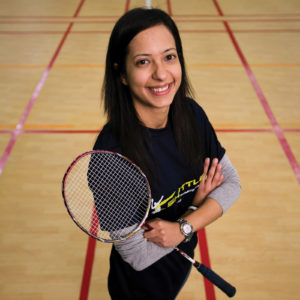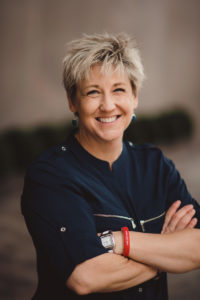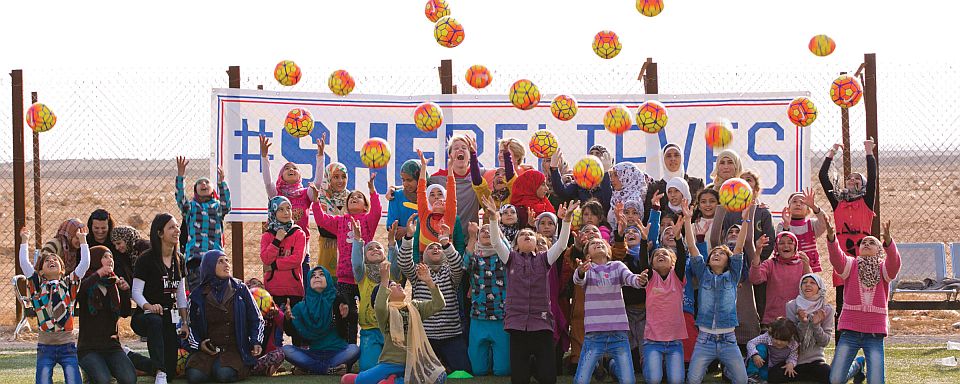As appeared in the Tennessee Alumnus Magazine
By Brian Canever
The suffering was hard for Dima Alardah to witness. She had arrived in Mosul, Iraq, in February 2018—only seven months after the Iraqi military had retaken the city from ISIS following brutal fighting that claimed the lives of thousands of civilians.
Now, Alardah, a Jordanian who organized youth programs for the Norwegian Refugee Council, watched as hundreds of thousands of residents returned home to a city destroyed by warfare.
“There was no infrastructure,” Alardah says. “No schools, no bridges and no houses. People were sick from the pollution in the air and the water. Everywhere you walked there were explosive devices left in the rubble.”
But Alardah never lost faith.
“As long as there is sport,” she says, “there is hope.”

Less than 200 miles from where Alardah stood, another woman had whispered the same message to herself a decade earlier: Sarah Hillyer (Knoxville ’10), director of the Center for Sport, Peace, and Society (CSPS) in UT Knoxville’s College of Education, Health, and Human Sciences.
Hillyer, a recipient of a 2019 UT President’s Award, repeated the statement hundreds of times since 2007, when she first arrived to Sulaymaniyah, a Kurdish city in northern Iraq where she spent time developing and growing women’s basketball. Much like Mosul, residents of the city are intimately familiar with the devastations of war. During the late 1980s, the Iraqi government launched a genocide campaign that led to the deaths of between 50,000 and 182,000 people, according to reports from human rights agencies and Kurdish government officials. Halabja, less than two hours by car from the gym where Hillyer taught girls to play basketball, was the site of a chemical attack that killed or injured more than 10,000 civilians.
Like Alardah, however, when Hillyer watched people step onto the court, she knew something special was about to happen.
“Sport is perhaps the most powerful tool to promote equality and inclusion around the world,” Hillyer says. “I believe it because I’ve seen it.” During a nearly 30-year career, Hillyer has traveled to more than two dozen countries spreading her message. She has led basketball and softball camps for refugees, religious and ethnic minorities, people with disabilities and, especially, girls and women in places like Morocco, Iran and China. Her work has always been joined by a common belief: Where people are excluded from sports, they are usually excluded from everything else, too.

Since co-founding the CSPS with former UT professor Ashleigh Huffman in 2012, Hillyer and the center have been awarded $9 million from the U.S. Department of State to train leaders from around the world on how to empower girls, women and people with disabilities through sports.
In 2014, Hillyer and Alardah’s paths crossed when Alardah was selected to participate in a five-week exchange program funded by the U.S. government and implemented by the CSPS. As part of the Global Sports Mentoring Program, Alardah worked with the CSPS and a sponsoring mentor organization, the Professional Golfers’ Association of America, to learn about how sport could be used to spur development, promote peace and empower marginalized groups.
Since then, Alardah and more than 150 sports leaders from 77 countries who have gone through the program have directly impacted the lives of more than 350,000 people around the world.
Four years ago, Hillyer and a delegation from the United States, including former U.S. women’s soccer national team players Lori Lindsey and Mary Harvey, stood together with Alardah in Jordan. The group hosted workshops and soccer clinics in the Zaatari and Mrajeeb Al Food refugee camps, where Alardah worked before she left for Iraq. After 10 months in Mosul, Alardah left for Myanmar in February. There she manages a program to bring together youth from the Rohinga Muslim and Rakhine Buddhist communities devastated by sectarian violence.
“Sport is like a bridge,” she says. “It brings people together. It’s a language that everyone can speak and understand.”
